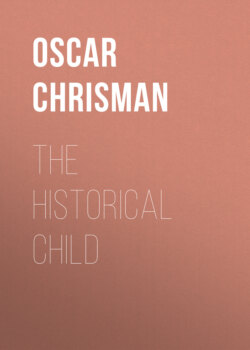Читать книгу The Historical Child - Oscar Chrisman - Страница 13
На сайте Литреса книга снята с продажи.
Human Sacrifice.
ОглавлениеTable of Contents
The sad and degrading side of the Aztec civilization was that of human sacrifice. The number of sacrifices was very great, estimated from twenty to fifty thousand annually, and on one occasion alone, the dedication of a great temple, no less than seventy thousand human beings were sacrificed to the gods. The great object of war, along with the desire for the extension of the kingdom, was to obtain victims for the sacrifices and hence an enemy was never slain in battle if there was a chance of taking him alive. Mostly the victims were prisoners of war but slaves also were used as sacrifices. Sometimes they offered up children, generally infants, who were obtained by the priests, purchased from poverty-stricken parents, who, perhaps, gave their children as much from a sense of religious duty as for money. These children were dressed in beautiful garments, and adorned with flowers. They were then carried in procession of chanting priests through the city to the place of sacrifice. The cries they uttered were not heard because of the chants of the priests, and the tears they shed were favorable omens.
These sacrifices were so conducted as to exhibit something of prominence relating to the deity being worshipped. The following illustrates this:—
"One of their most important festivals was that in honor of their god Tezcatlipoca, whose rank was inferior only to that of the Supreme Being. He was called 'the soul of the world,' and supposed to have been its creator. He was depicted as a handsome man, endowed with perpetual youth. A year before the intended sacrifice, a captive, distinguished for his personal beauty, and without a blemish on his body, was selected to represent this deity. Certain tutors took charge of him, and instructed him how to perform his new part with becoming grace and dignity. He was arrayed in a splendid dress, regaled with incense and with a profusion of sweet-scented flowers, of which the ancient Mexicans were as fond as their descendants of the present day. When he went abroad, he was attended by a train of royal pages, and, as he halted in the streets to play some favorite melody, the crowd prostrated themselves before him, and did him homage as the representative of their good deity. In this way he led an easy, luxurious life, till within a month of his sacrifice. Four beautiful girls, bearing the names of the principal goddesses, were then selected to share the honors of his bed; and with them he continued to live in idle dalliance, feasted at the banquets of the principal nobles, who paid him all the honors of a divinity.
"At length the fatal day of sacrifice arrived. The term of his short-lived glories was at an end. He was stripped of his gaudy apparel, and bade adieu to the fair partners of his revelries. One of the royal barges transported him across the lake to a temple which rose on its margin, about a league from the city. Hither the inhabitants of the capital flocked, to witness the consummation of the ceremony. As the sad procession wound up the sides of the pyramid, the unhappy victim threw away his gay chaplets of flowers, and broke in pieces the musical instruments with which he had solaced the hours of captivity. On the summit he was received by six priests, whose long and matted locks flowed disorderly over their sable robes, covered with hieroglyphic scrolls of mystic import. They led him to the sacrificial stone, a huge block of jasper, with its upper surface somewhat convex. On this the prisoner was stretched. Five priests secured his head and his limbs; while the sixth, clad in a scarlet mantle, emblematic of his bloody office, dexterously opened the breast of the wretched victim with a sharp razor of itztli—a volcanic substance, hard as flint,—and, inserting his hand into the wound, tore out the palpitating heart. The minister of death, first holding this up toward the sun, an object of worship throughout Anahuac, cast it at the feet of the deity to whom the temple was devoted, while the multitudes below prostrated themselves in humble adoration. The tragic story of this prisoner was expounded by the priests as the type of human destiny, which, brilliant in its commencement, too often closes in sorrow and disaster."10
